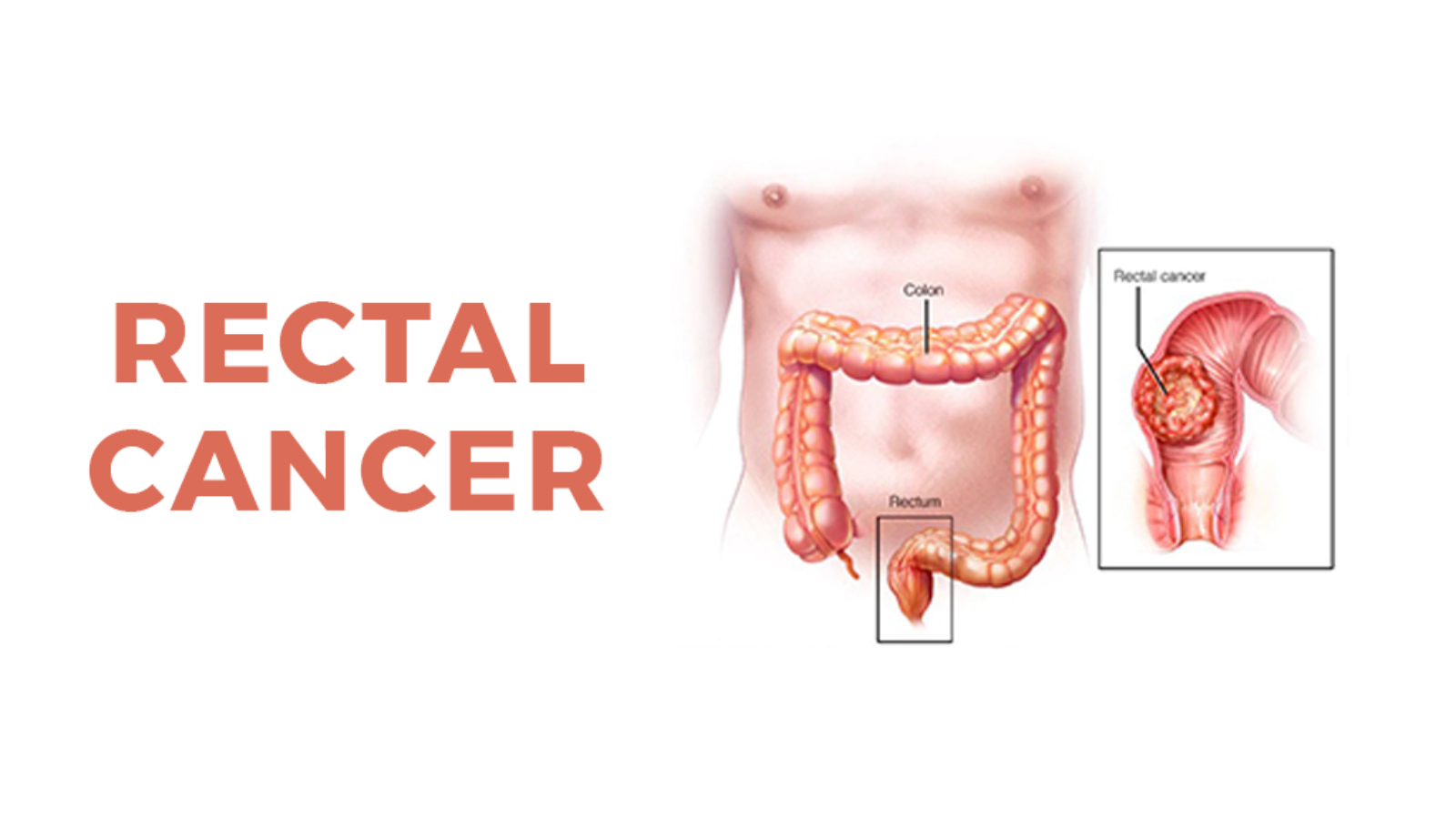The rectum begins at the end segment of the colon, and ends when it reaches a short, narrow passage called the anus. The cancerous growth in the rectum is called rectal cancer. The rectum is a small section of the large intestine. Constipation, bloody stool, or bowel pain are a few symptoms of rectal cancer. Early on, the outlook for those with this type of cancer can be very positive’ however, it can become quite poor as time goes by. We prepared this blog to help our readers understand deeper aspects about rectal cancer.
Rectal Cancer Overview
The rectum is a lower portion of the colon which connects the large bowel with the anus. The primary purpose of the rectum is to store formed stools in preparation for evacuation. When cells in the rectum grow uncontrollably and mutate, they can develop rectal cancer. It can also occur when polyps on the inner surface of the rectum become cancerous.
Adenocarcinoma is the most common form of rectal cancer that arises from the mucosa. Cancer cells may also spread to lymph nodes from the rectum on their way to another part of the body. The prognosis of rectal cancer is similar to colon cancer as it depends on the extent of the cancer spread. Since, the rectum is a part of the colon located in the pelvis; it poses additional treatment challenges when compared to colon cancer.
Rectal Cancer Symptoms
You may have rectal cancer for years without noticing any symptoms or changes in your body. Rectal cancers can be silent with no signs, however, some people might notice the symptoms listed below:
- Vague abdominal pain
- Blood in the stool
- Changes in the shape of the stool
- Fatigue
- Unexplained weight loss
- Rectal bleeding
- Diarrhea
- Constipation
- A sudden change in how and when you poop.
- Tiredness
- Weakness
- Abdominal pain
Risk Factors
Listed below are a few risk factors that can cause a person to develop Rectal Cancer:
- Advancing age
- Smoking
- Family history of colon or rectal cancer
- High-fat diet
- Personal or family history of polyps or colorectal cancer
- Inflammatory bowel disease
- Consuming alcohol
- Having obesity
- Eating red or processed meat
- Using androgen replacement therapy
- Having had a cholecystectomy
Rectal Cancer Stages
Mentioned below is the rectal cancer progression of rectal cancer into five stages:
Stage 0: Cancerous cells present on the surface lining of the rectum.
Stage 1: Cells often spread to the mucosal layer.
Stage 2: During this stage, the cancerous cells spread through the rectal wall.
Stage 3: Entering to this stage means tumor cells attack lymph glands.
Stage 4: The last stage where tumors develop in other organs or parts of the body.
Rectal Cancer Diagnosis
The diagnosis of rectal cancer can be made by combining the following symptoms:
Screening Tests and Physical Examination
Beginning with a medical history and a physical examination, the doctor may even insert a gloved finger into your rectum to evaluate the lumps. Next, the doctor may even recommend a fecal immunochemical test or a sigmoidoscopy. These tests are scheduled differently depending on your condition and risk. If the results of these tests show that cancer is present, then the next step is colonoscopy.
Colonoscopy
A doctor will use a thin, flexible tube with a camera and light at its end to examine the rectum. And if they spot any polyps growth during this, they remove them. The doctor can collect tissue samples during the colonoscopy for later laboratory examination. The doctors then examine the cancer.
Blood Tests
Next, a doctor may also ask for a blood test because high levels of carcinoembryonic produced by cancerous tumors, may indicate rectal cancer.
Imaging Tests
Imaging tests are another cancer diagnosis method to determine the cancer spread. A doctor can use endorectal ultrasonography to examine the rectum. A doctor inserts a small probe into the rectum to create a sonogram.
Other imaging tests may include:
- CT or PET scans can help doctors see the extent of cancerous cells in the colon, rectum and other organs.
- MRI can help doctors determine the stage of cancer.
Treatment Options
The treatment method for rectal cancer may depend on several factors, including the stage of cancer and the location of tumors. Based on such factors, a professional doctor will create a reliable treatment strategy for your rectal cancer condition:
Surgery
Surgery might be a reliable treatment option in the early stages. To remove cancerous tissue from the rectal area, the doctors may use the most suitable surgical techniques. The type of surgery will depend on the general health of the patient, the stage and location of the tumor, along with their overall health.
Chemotherapy
Chemotherapy can work for rectal cancer when the tumor spreads into nearby lymph nodes or has infiltrated the wall of the colon. Organs are composed of cells which divide and multiply when the body requires them. These cells can multiply without reason, resulting in a growth or mass, also known as a tumor.
Chemotherapy eliminates these rapidly multiplying renegade cells. The rectal cancer treatment may include chemotherapy before or after surgery, and it may also be combined with radiation therapy.
Radiation Therapy
Another treatment option for treating rectal cancer that uses high-energy beams of radiation to shrink tumors, and destroy cancer cells. Radiation therapy causes cancer cells to die by damaging their DNA and can be used in combination with chemotherapy.
Immunotherapy
Cancer immunotherapy is a form of treatment that uses medicine to help the immune system destroy cancer cells. Immunotherapy in rectal cancer can be performed before or after surgery. Also, it can treat cancer which has spread beyond the rectum. Only a few people with rectal cancer can benefit from immunotherapy. Consult with a cancer specialist.
Do women face the same symptoms of rectal cancer?
Early signs of rectal cancer are similar for both men and women. However, premenopausal women should not confuse symptoms of rectal carcinoma with menstrual problems. Speak to your doctor about any concerns you may have, particularly if the bloating doesn’t disappear or occurs with unexplained loss of weight.
Prevention
Listed below are a few tips to prevent rectal cancer:
- Maintain a healthy weight. Ask your healthcare provider for advice if you are not sure.
- Exercise regularly.
- Avoid eating processed meat. Have a balanced diet that includes whole grains, lean proteins, and plenty of leafy greens.
- Avoid drinking alcohol-containing beverages.
- Don’t smoke.
Wrapping Up!
We tried our best to cover every relatable aspect about Rectal Cancer, including its symptoms, causes, stages, diagnosis and treatment. You may not feel any symptoms at all or only have minor ones; however, when you may feel symptoms, it may already be too late.
The expert doctors at Samsara Cancer Care are well-trained to recognize when symptoms indicate a serious condition and can diagnose the disease following proper techniques. Our rectal cancer specialist Dr.Sameeksha at Samsara Cancer Care treats all types and stages of the disease. Book your appointment today!

